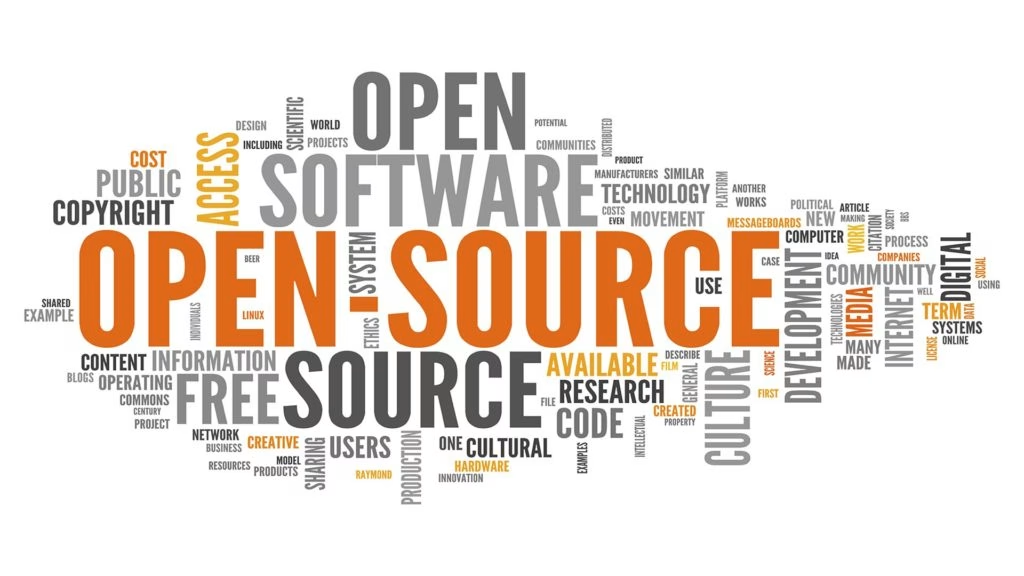. Defining Open-Source Software (OSS)
OSS refers to software whose source code is publicly available—anyone can use, modify, and distribute it under licenses like MIT, Apache, or GPL . It fosters collaborative development where contributions from a global community drive improvements and innovation .
2. Core Advantages for Startups
a) Cost Efficiency and Resource Leverage
- OSS eliminates licensing fees, slashing initial costs for startups .
- Reusing preexisting open components accelerates development and allows focus on unique value rather than reinventing the wheel .
b) Rapid Innovation through Collaboration
- Global developer communities contribute diverse expertise, boosting creativity and problem-solving .
- Multiple contributors working in parallel accelerate iteration cycles and product evolution .
c) Security through Transparency
- Public scrutiny helps identify and fix bugs quickly—embodied in Linus’s Law: “given enough eyeballs, all bugs are shallow” .
- High-profile cases, like the rapid patching of OpenSSL’s Heartbleed, demonstrate this advantage .
- Nonetheless, OSS brings risks like uncontrolled dependencies and vulnerabilities—effective governance practices are essential .
d) Democratization of Access
- Free availability of OSS makes advanced technologies accessible to under-resourced startups globally .
- OSS supports digital inclusion, particularly in developing regions and underserved segments .
3. Catalyzing Startup Innovation Across Domains
i) AI & Machine Learning
- Frameworks like TensorFlow and PyTorch are open-source foundations powering AI-based startups .
- Open-source AI facilitates transparency, adaptability, and cost-effective access—crucial for emerging startups .
ii) Cloud Infrastructure & DevOps
- Tools like Kubernetes and OpenStack offer modular, scalable, open infrastructure—ideal for startups building robust, agile systems .
iii) Business Foundations: Licensing & Models
- Startups benefit from dual-licensing, open-core, freemium, or service-based models to monetize OSS while maintaining transparency .
iv) Community-Driven Innovation
- Cases like Sony Mobile show how engaging with OSS communities can yield free maintenance, features, and process enhancements .
- Open ecosystems foster competitive cooperation: competitor firms may jointly develop OSS infrastructure (e.g., OpenStack), sharing risk while advancing innovation .
4. Strategic Motivations for Corporations to Support OSS
- Corporations open-source components to enhance branding, attract talent, and stimulate ecosystem growth—Twitter’s Bootstrap is a notable example .
- OSS helps offset monopolistic tendencies and promotes open alternatives—e.g., GNU/Linux and LibreOffice challenging proprietary dominance .
5. Macroeconomic Impact & Sustainability
- The economic value of OSS to firms is estimated at $8.8 trillion, representing 3.5× savings over building proprietary systems .
- In France, government incentives for OSS led to ~600,000 contributions per year, a 14% rise in IT employment and an 18% surge in tech startups .
- Algo markets such as Linux, Git, MySQL, Docker, and MongoDB show hundreds of millions to billions in market value .
6. Recent Trends in Open Ecosystems & AI (2025)
- Since late 2022’s AI boom, ~20,000 businesses have adopted open-source AI solutions .
- Meta’s LLaMA models exceeded 1 billion downloads by March 2025, demonstrating massive enterprise adoption .
- Hardware giants like Nvidia (Linux, PyTorch) and AMD (ROCm, open standards) are strengthening open-source toolchains .
- Standards like Anthropic’s Model Context Protocol (MCP) are enabling open, interoperable AI systems, reinforcing startup agility .
7. Organized Impacts on Startups
| Area | Benefits from Open-Source |
|---|---|
| Cost & Access | Low entry barrier; significant savings on development and licensing |
| Development Speed | Rapid innovation via shared codebases and active communities |
| Trust & Security | Transparent design, peer reviews, and fast issue resolution |
| Diversified Collaboration | Global contributors improve quality and resilience |
| Business Agility | Flexible, modular platforms support pivots and scaling |
| Ecosystem Support | Broad vendor compatibility; rich tooling from hardware to software |
| Economic Leverage | Huge cost/market value impact; growth in jobs and startups |
Conclusion
Open-source software is the accelerant that ignites startup innovation—from lowering financial barriers and accelerating development to enabling trust, collaboration, and adaptability. Its ripple effects are reshaping sectors like AI, cloud computing, and infrastructure, empowering startups to compete at scale. Supported by open standards and vibrant ecosystems, OSS ensures startups can build, pivot, and scale with confidence—making it a foundational ingredient of the next generation of technological ventures.




